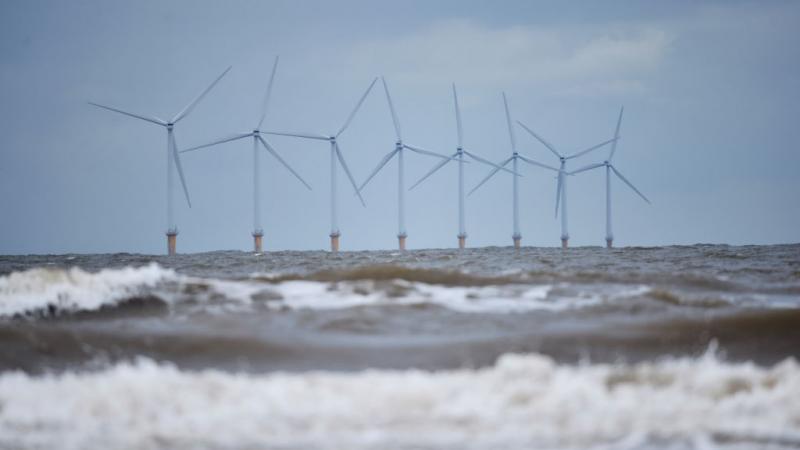States are adopting California’s e-truck rules, which industry says will increase consumer costs
An industry representative told Congress a truck driver today can fill up a diesel truck in 15 minutes, which will take the driver 1,200 miles. Battery-powered trucks require a two hour charge just to go 200 miles.
Maryland has become the 10th state to adopt California’s Advanced Clean Trucks rule even though 19 state attorney generals and a coalition of stakeholders are suing the Golden State to stop it.
The trucking industry warns that the mandate comes with a host of problems, many of them similar to those consumers have seen with electric vehicle mandates for passenger cars.
In 2022, according to the American Trucking Associations, 72.6% of the nation’s freight moved by truck. With large amounts of consumer goods shipped by trucks, the rules will add costs to freight, which will ultimately be passed down to the consumer, the industry warns.
Earlier this year, the U.S. Environmental Protection Agency granted California — and only California — a waiver that allows the state to enforce regulations that will require half of all heavy-duty vehicle sales to be electric. By 2042, operators in California and those passing that state's rules, such as Maryland, will be required to have fully zero-emission fleets. In most cases, the vehicles will need to be electric.
Since a lot of shipping crosses state lines, the adoption of the rules across nearly a dozen states — with more planning to adopt the rules — California’s zero-emission trucking rules will function much like a federal mandate.
Andrew Boyle, co-president of Boyle Transportation and first vice-chair of the American Trucking Associations, explained these issues during testimony in April before a Senate subcommittee.
Boyle said that a truck driver today can fill up his or her diesel truck in 15 minutes, which will take the driver 1,200 miles. The battery-powered trucks require a two hour charge just to go 200 miles. In cold weather and steeper roads, the range decreases.
Boyle said that advanced DC fast chargers, which cost $100,000 each, reduce the charging time in half, but they still require a driver to five hours to achieve the same range a driver in a conventional truck could get in 15 minutes. “Assuming a truck could even carry that quantity of batteries,” Boyle said.
This is also assuming, he said, that a driver could find a charging station, of which there are currently few available.
Long-haul trucks, Boyle continued, require batteries weighing anywhere from 6,000 to 17,000 pounds, which cuts into the total payload capacity a truck can carry.
“When trucks are less productive due to decreased payload capacity, limited mileage range, and downtime for charging, the consequence is that more trucks and drivers are needed to move the same amount of freight,” Boyle warned.
These added costs are high and, Boyle said, will eventually hit consumers.
Steve Goreham, an energy researcher and author of “Green Breakdown,” told Just The News that these rules will likely turn out in practice the same way that offshore wind and consumer EV mandates have gone.
“Green breakdown is coming. No doubt about it. We're seeing all kinds of signs of it,” Goreham said.
In an article concerning the zero-emission truck mandates on the free market energy blog Master Resource, Goreham wrote that a new heavy-duty truck charging station in California charges up to 32 trucks in “as little as 90 minutes or overnight.”
Just 16 of the chargers require, when all charging, 6 megawatts of electricity. With all 16 charging for one hour, which would be 6 million megawatt hours of electricity, the trucks would consume the equivalent amount of electricity that approximately 200 average American homes would consume in a full day.
In November, 19 state attorney generals and numerous industry representatives filed a brief before the U.S. Circcuit Court of Appeals for the District of Columbia arguing that the rules are unconstitutional under the equal-sovereignty doctrine. The waiver the EPA granted California, the plaintiffs argue, allowed a single state to regulate climate change, an issue with a global scale.
“Even if the equal-sovereignty doctrine permits Congress to give California alone the power to regulate matters of unique importance to California, Congress cannot empower California alone to regulate a global problem like climate change,” the brief states.
California’s electric trucking mandate is aimed at reducing emissions from shipping, but those emissions reductions, even if the zero-emission trucks are fully adopted as the rules require, are far from certain.
In a study published earlier this year, Mark Mills, senior fellow at the Manhattan Institute, explained that producing electric vehicles requires far more mining than conventional automobiles. From mining to processing raw ore to manufacturing the vehicles and their batteries, there are so many variables, the study found, that no one really knows if there are any emissions reductions. The larger the battery, the study noted, the less likely there are any emission reductions.
Mills told Just The News that the probability that electric trucks produce more emissions over the life of the vehicle compared to a comparable diesel semi is greater because of their size.
And that doesn’t include anymore emissions that come from the production of electricity for the charging stations. Mills said that even if a charging station were charging in the day with solar panels, there may not be emissions savings.
“The emissions that are created just to make the battery in many cases — we know this from the technical literature — are sufficient to wipe out all the emissions you save by not burning diesel fuel during operations of the truck,” Mills said.
Mills added that there are applications where the trucks become more feasible. So, for example, with a truck or bus with very short, daily routes that can charge overnight, the charging infrastructure problem can be managed. However, that’s a small portion of all shipping.
“Most trucks, it won't make sense as a practical matter, or an economic matter,” he said.
The Facts Inside Our Reporter's Notebook
Links
- tenth state to adopt Californiaâs Advanced Clean Trucks rule
- according to the American Trucking Associations
- require half of all heavy-duty vehicle sales to be electric
- explained these issues during testimony
- Green Breakdown
- offshore wind
- consumer EV mandates
- concerning the zero-emission truck mandates
- as little as 90 minutes or overnight
- approximately 200 average American homes would consume in a full day
- arguing that the rules are unconstitutional
- study published earlier this year
















